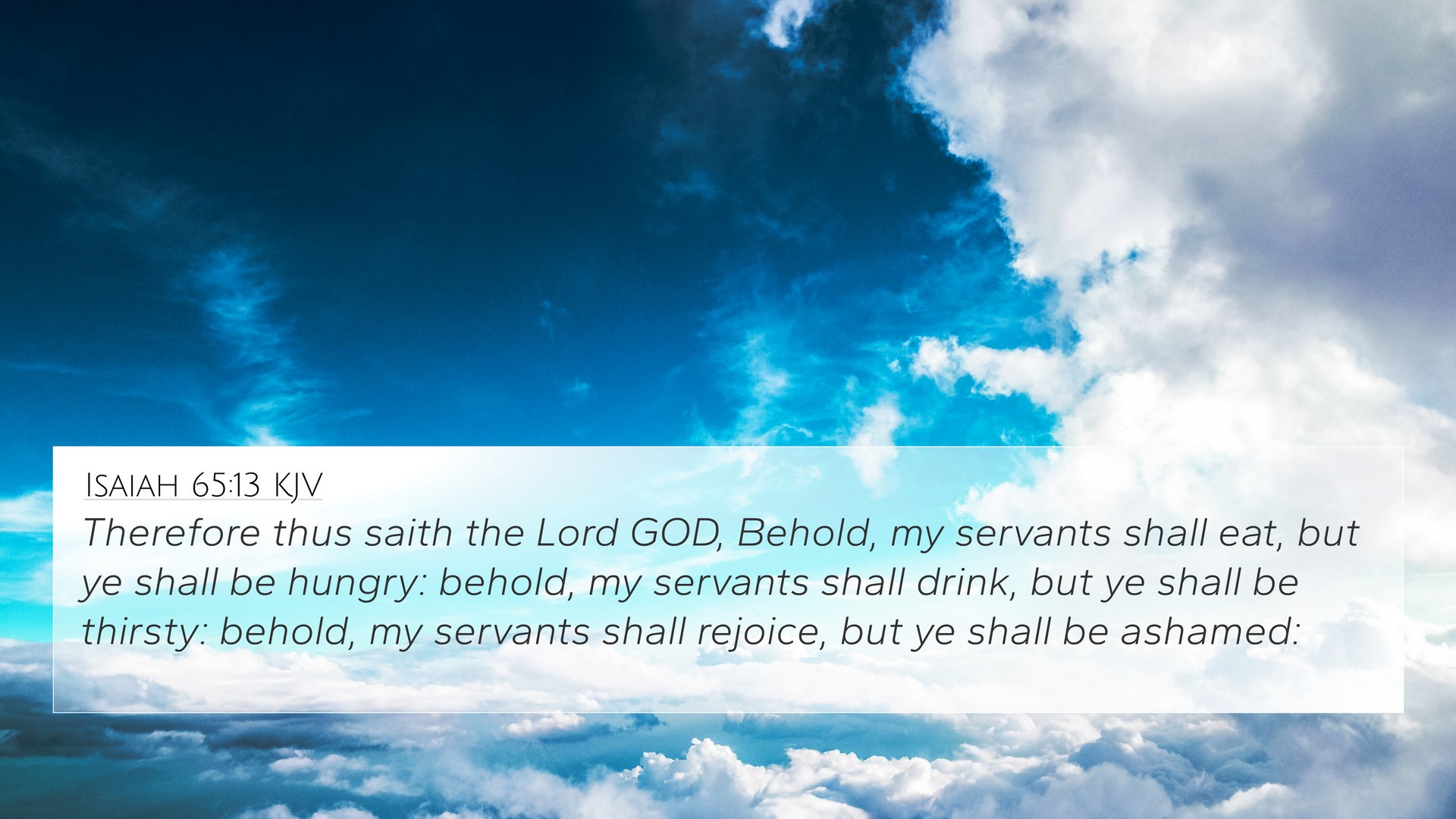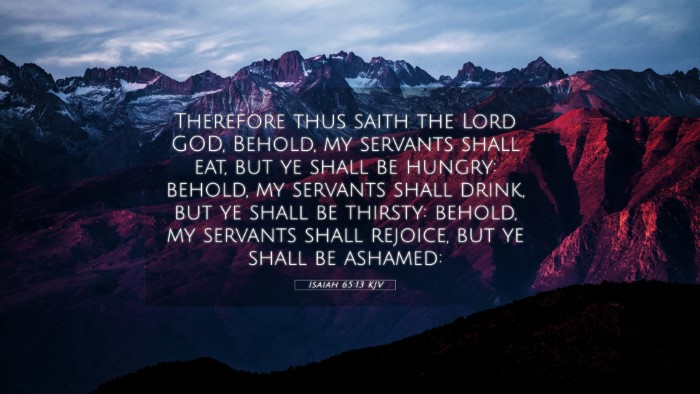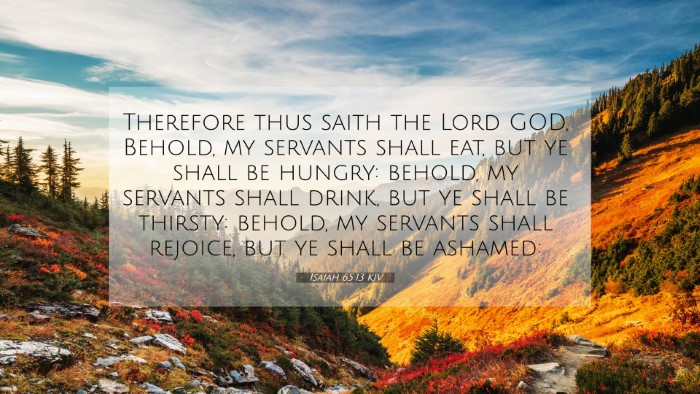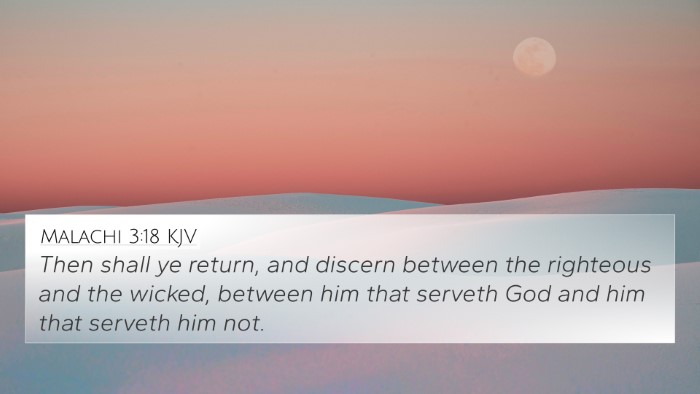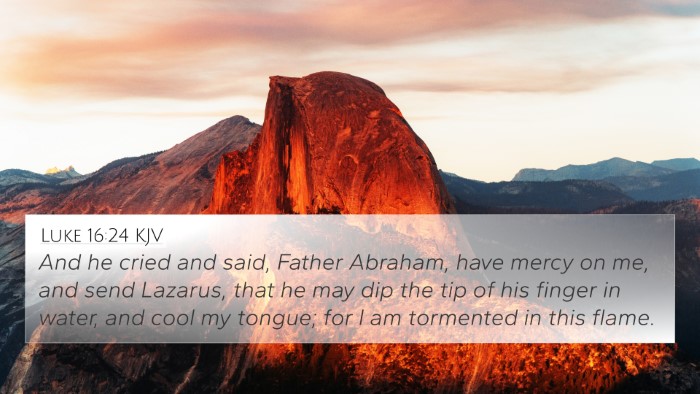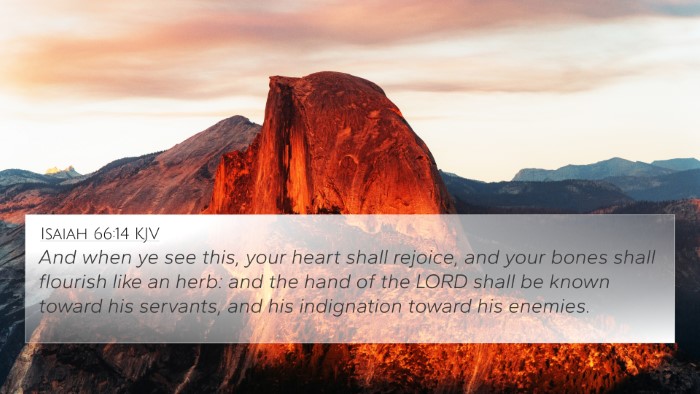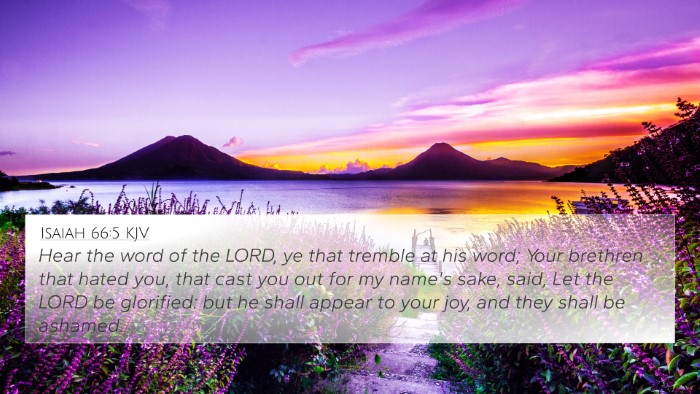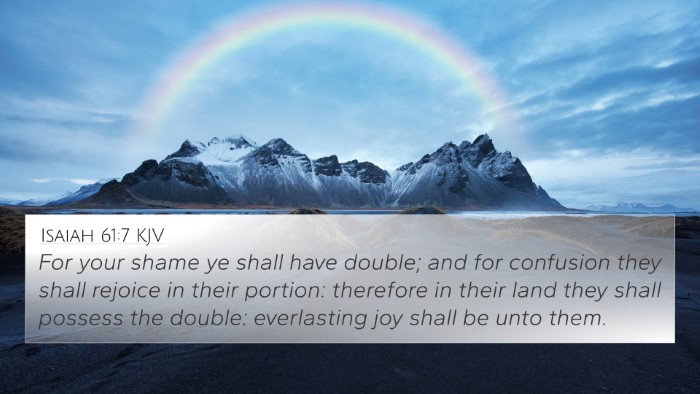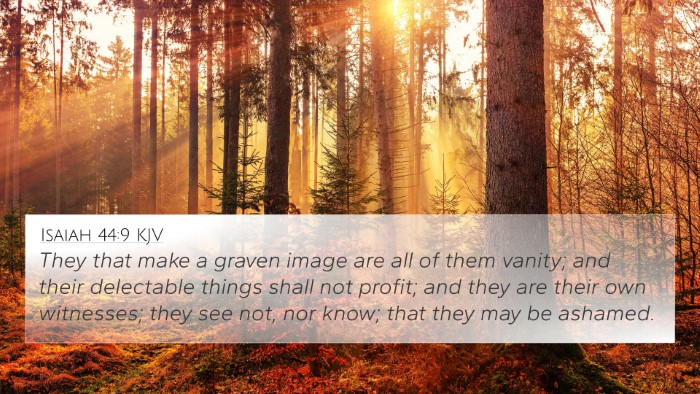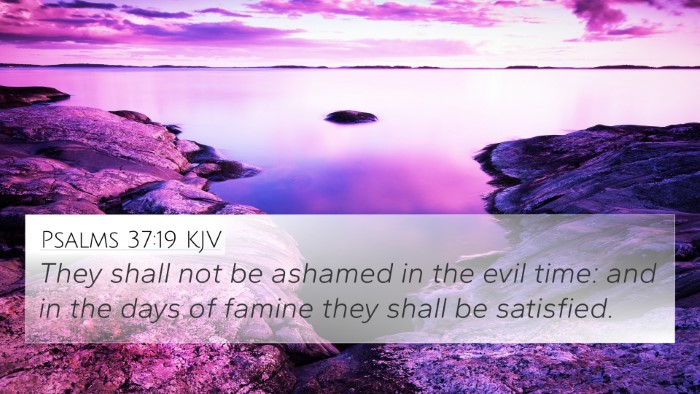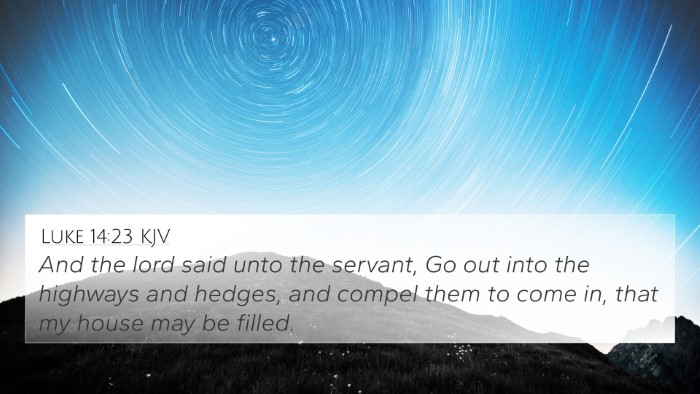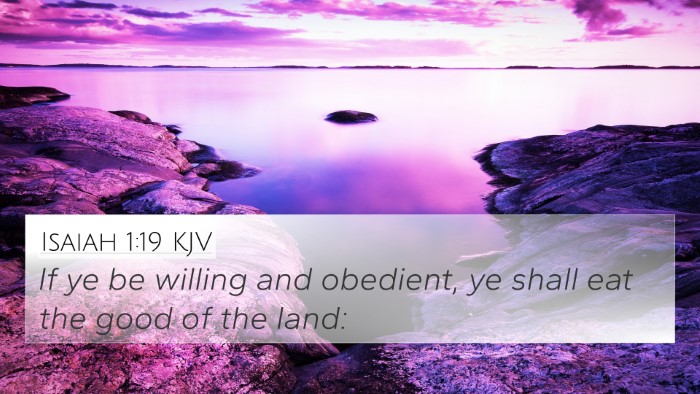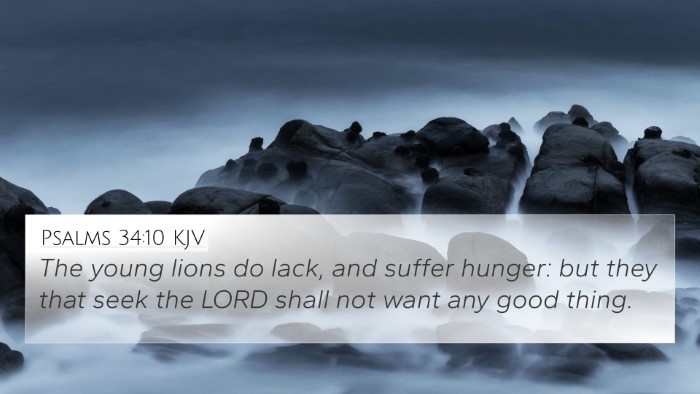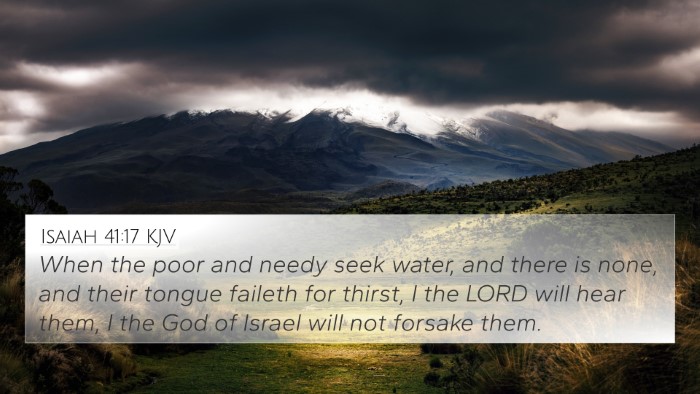Understanding Isaiah 65:13
Isaiah 65:13 states:
"Therefore thus saith the Lord God, Behold, my servants shall eat, but ye shall be hungry: behold, my servants shall drink, but ye shall be thirsty: behold, my servants shall rejoice, but ye shall be ashamed."
This verse presents a powerful contrast between the fate of God's servants and those who oppose Him. In this summary, we will explore the meaning of this verse using insights from renowned public domain commentaries while also providing Bible verse connections and cross-references for deeper understanding.
Verse Analysis
The verse serves as a declaration from God, highlighting two distinct groups: His faithful servants and those who reject Him. It sheds light on the broader theme of divine justice and providence, where God's blessing is assured for His followers, while those outside of His grace face consequences.
Key Themes
- Divine Provision: God promises sustenance and joy to His servants.
- Judgment: Those who oppose God will face hunger and shame.
- Contrast of Outcomes: Illustrates the stark differences between the faithful and the unfaithful.
Commentary Insights
According to Matthew Henry, this verse emphasizes that God's people will be provided for and will experience joy, symbolizing blessings both in this life and the next. He also points out that the contrasting conditions serve to reinforce the idea of God's faithfulness to His own.
Albert Barnes elaborates that the terms "eat" and "drink" symbolize spiritual nourishment. The hunger and thirst representative of those outside of God’s grace pertain not only to physical needs but also to a deeper spiritual void that will remain unfulfilled.
In the view of Adam Clarke, the shame referred to is not simply physical but also represents spiritual shame, reflecting the consequences of living in rebellion against God. Clarke considers this verse a clear reminder of the inevitable results of one's choices in relation to divine will.
Connecting Bible Verses
Isaiah 65:13 resonates with several other Bible verses, creating a network of themes surrounding divine provision and judgment. Below are key cross-references that enhance the understanding of this verse:
- Psalm 37:25: "I have been young, and now am old; yet have I not seen the righteous forsaken, nor his seed begging bread."
- Matthew 5:6: "Blessed are they which do hunger and thirst after righteousness: for they shall be filled."
- Luke 6:21: "Blessed are ye that hunger now: for ye shall be filled. Blessed are ye that weep now: for ye shall laugh."
- Revelation 7:16: "They shall hunger no more, neither thirst any more; neither shall the sun light on them, nor any heat."
- John 6:35: "And Jesus said unto them, I am the bread of life: he that cometh to me shall never hunger; and he that believeth on me shall never thirst."
- Romans 8:18: "For I reckon that the sufferings of this present time are not worthy to be compared with the glory which shall be revealed in us."
- Proverbs 10:3: "The Lord will not suffer the soul of the righteous to famish: but he casteth away the substance of the wicked."
Inter-Biblical Dialogue
This verse opens conversations between the Old Testament's prophetic declarations and the New Testament’s teachings on spiritual fulfillment and eternal life. The thematic connections can be explored through tools for Bible cross-referencing:
- Bible concordance: Find similar themes across scripture.
- Bible cross-reference guide: Discover direct and thematic correlations.
- Cross-reference Bible study: Equip yourself to explore deeper connections.
Application for Today's Believer
Isaiah 65:13 serves as a profound assurance for believers today. It teaches that faithfulness to God leads to His blessings, while a life lived in opposition leads to emptiness and disgrace. In applying this verse, consider:
- Reflection: Are you fully relying on God's provision in all areas of your life?
- Sharing: Share the message of provision with those facing spiritual hunger.
- Encouragement: Encourage others to uphold their faith during challenging times, trusting in God's promises.
Conclusion
In conclusion, Isaiah 65:13 encapsulates a powerful message regarding the provision and judgment of God. By understanding this verse and its connections to other scriptures, believers can grow in their faith and comprehension of God's character.
